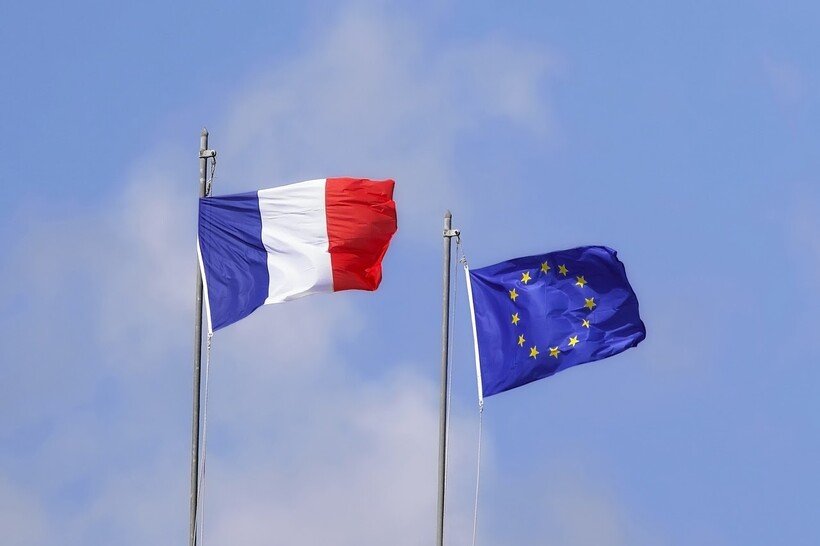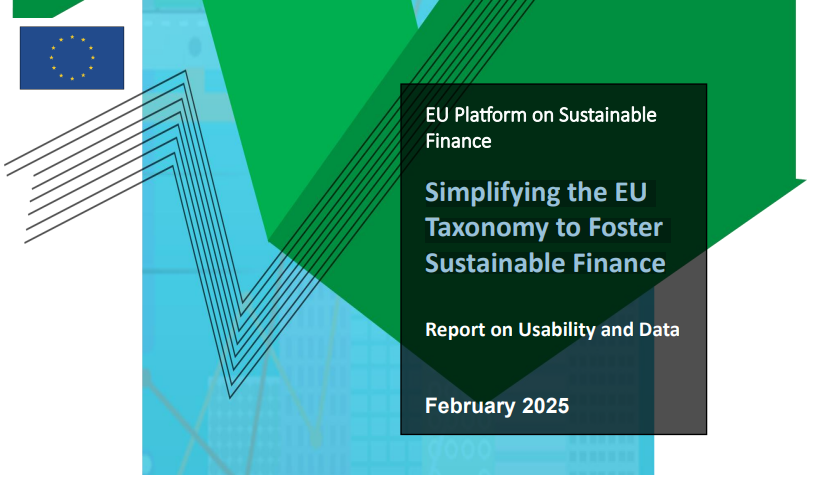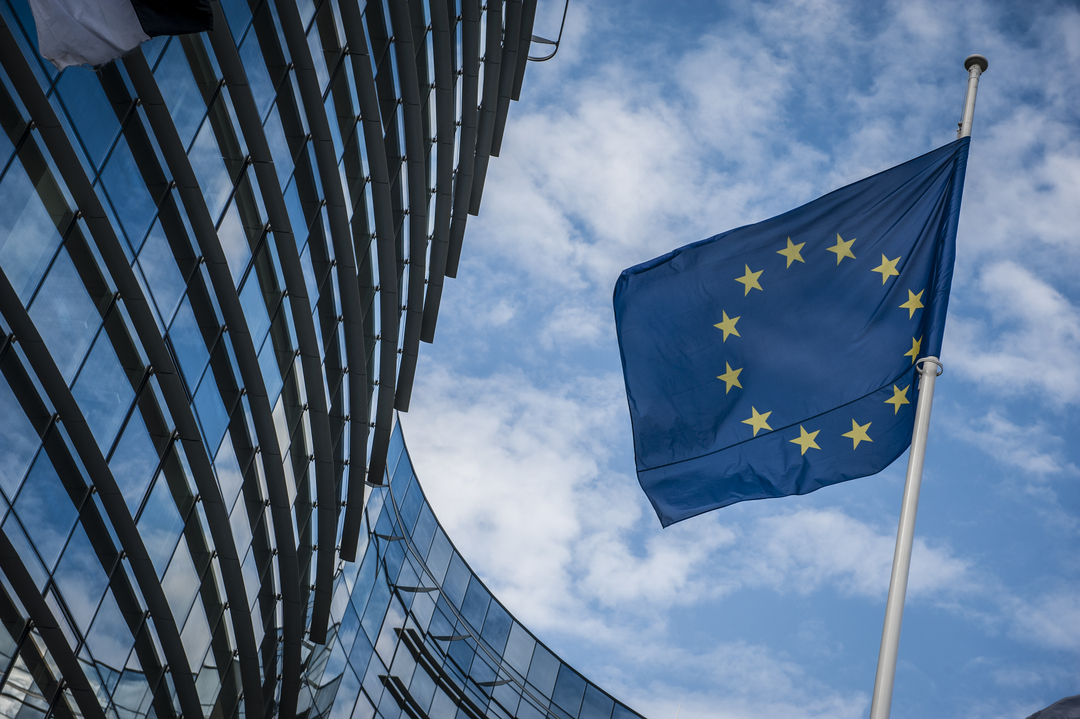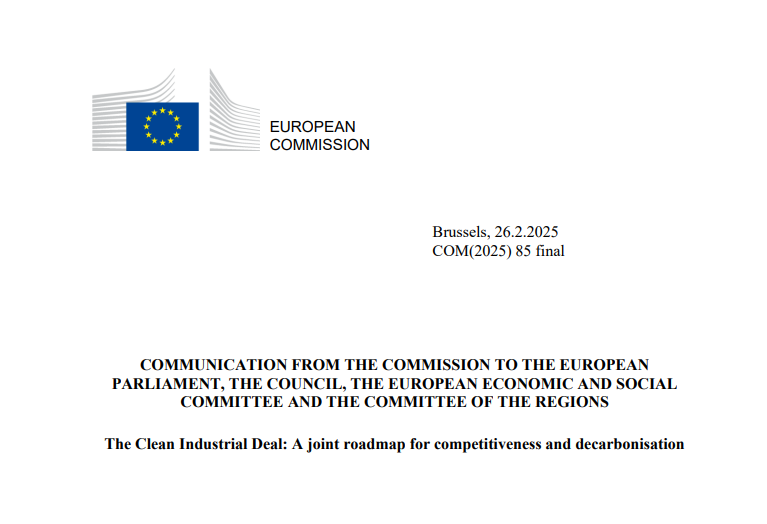EU Launches Clean Industrial Deal: A Decisive Step Towards Decarbonisation and Clean Energy
The European Commission has introduced the Clean Industrial Deal — a strategy aimed at accelerating decarbonisation and enhancing the competitiveness of European manufacturers. At its core, the focus is on implementing sustainable technologies and creating demand for low-carbon products. This initiative will not only improve environmental performance but also open new business opportunities, stimulating innovation and clean production across Europe.
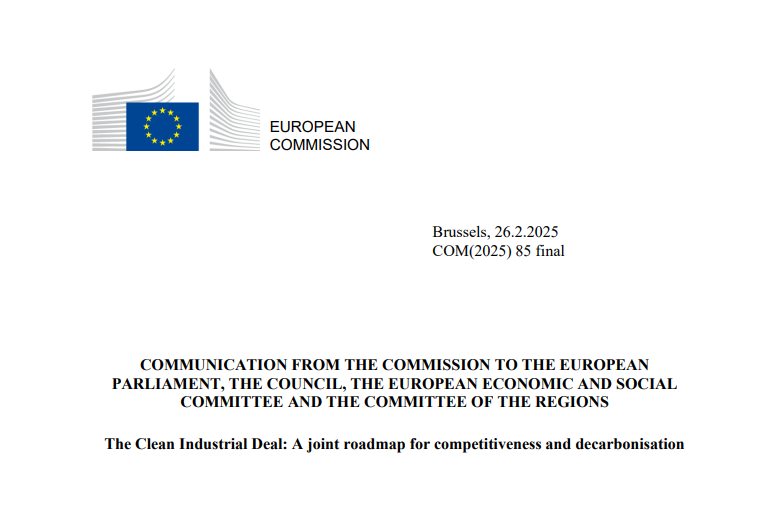
The European Commission has unveiled the Clean Industrial Deal — an ambitious and comprehensive strategy aimed at accelerating industrial decarbonisation across Europe, enhancing the competitiveness of European manufacturers, and stimulating demand for low-carbon products. This initiative seeks to address some of the most pressing challenges faced by energy-intensive sectors, such as high energy costs, complex regulatory frameworks, and fierce global competition. The strategy spans the entire industrial cycle, from promoting sustainable technologies and improving waste recycling to developing a market for clean products.
Key Objectives and Vision of the Clean Industrial Deal
The main goal of the Clean Industrial Deal is to create conditions for long-term investments in decarbonisation technologies while reducing Europe’s dependence on imports of critical raw materials. Special attention will be paid to supporting the transition to clean energy, promoting closed-loop production systems, and encouraging businesses to adopt sustainable technologies. A central aspect of the strategy is ensuring Europe’s global competitiveness while achieving climate goals, which requires creating a level playing field for businesses across the EU.
Key Measures to Reduce Energy Costs
A core element of the strategy is ensuring access to clean energy and reducing the EU’s reliance on imported materials, particularly critical raw materials used in energy-intensive industries. The European Commission plans to support the creation of new cross-border projects, enhance industrial energy efficiency, and help sectors transition to clean energy sources. In this context, new financial mechanisms will play an important role. The European Investment Bank (EIB) will support corporate power purchase agreements (PPAs), especially for small and medium-sized enterprises and energy-intensive industries, ensuring financial stability for businesses transitioning to clean energy. This will be complemented by regulatory simplification to make access to clean energy cheaper and more accessible for all sectors.
Simplifying State Aid Rules for Clean Technology Projects
The European Union also introduced plans to simplify state aid rules in order to accelerate the deployment of renewable energy and industrial decarbonisation by 2025. This includes simplifying the approval process for funding clean technology production and reducing barriers for projects that are crucial for meeting long-term decarbonisation goals. Simplifying energy taxation rules will support electrification in industry, making clean energy more affordable and accessible for all sectors.
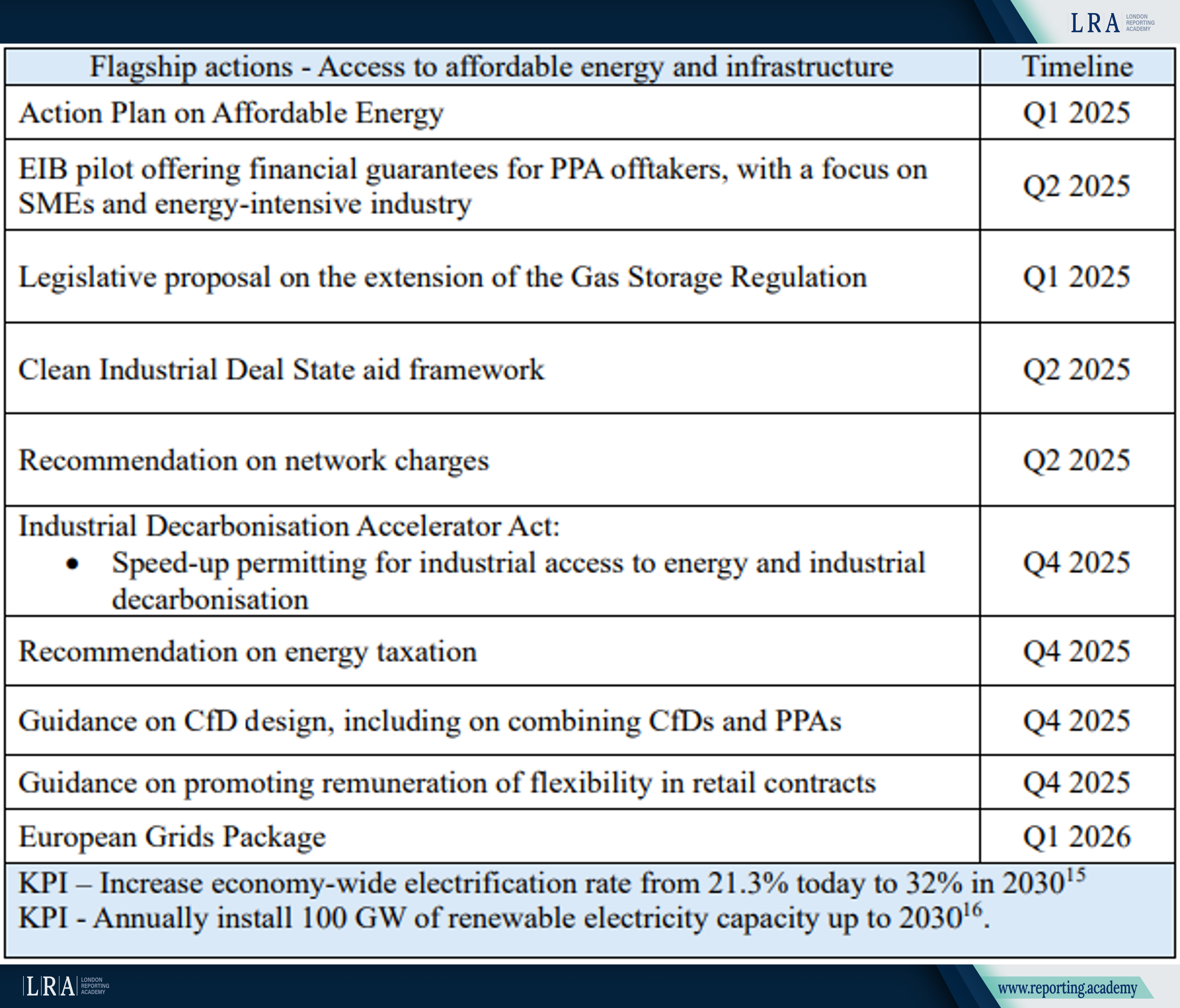
Source: The Clean Industrial Deal: A joint roadmap for competitiveness and decarbonisation
Modernising the Energy Grid and Strengthening Gas Market Oversight
In addition to simplifying tax and regulatory rules, the Commission plans to address the modernisation of the energy grid. Through the European Energy Package, the EU aims to accelerate the construction of cross-border connections and improve the delivery of clean energy across borders, enhancing the efficiency and resilience of the energy grid. Furthermore, the EU will continue to monitor the gas market to prevent market manipulation and improve transparency. A Gas Market Monitoring Group has been established to oversee the correct functioning of the market, with legislative changes being considered to strengthen oversight functions.
Introducing Carbon Labelling for Low-Carbon Products
The introduction of a carbon intensity labelling system for industrial products, starting with steel, will provide businesses and consumers with a clear understanding of the carbon footprint of the products they purchase. This initiative aims to create a market incentive for manufacturers to switch to cleaner production methods and enable them to receive targeted incentives that reward the production of low-carbon goods throughout the entire supply chain. In addition, public procurement will prioritise low-carbon products, providing government support for the development of sustainable industries.
Introducing Sustainability Requirements and Stimulating the Production of Clean Products
The strategy provides for the adoption of the Industrial Decarbonisation Act, which sets new sustainability requirements for products. Particular emphasis will be placed on prioritising products labelled ‘Made in Europe’ in public and corporate procurement.
Additionally, the introduction of a voluntary carbon labelling system is provided for. The first sectors to begin using such labelling will be steel and cement. This will allow buyers to see the real carbon cost of goods, and companies will receive incentives to reduce clean product production throughout the entire production chain.
Financial Mechanisms for Supporting the Transition to Clean Energy
The Clean Industrial Deal also includes financial mechanisms to assist companies in transitioning to clean technologies. The EU plans to establish the Industrial Decarbonisation Bank, which will allocate up to €100 billion to finance clean energy projects. This initiative will provide businesses with the necessary financial instruments to implement sustainable technologies and infrastructure. Moreover, the InvestEU programme will be expanded to support high-risk projects in low-carbon technologies, strengthening the EU’s position as a leader in the transition to clean energy.
Circular Economy and Strengthening Local Supply Chains
Furthermore, a Clean Industrial Deal State Aid Framework will be introduced, facilitating the acceleration of support for projects focused on renewable sustainability and clean technologies, particularly for small and medium-sized enterprises. The EU will also focus on developing a circular economy where materials are recycled and reused rather than discarded, reducing dependence on primary raw materials and opening new opportunities for businesses within Europe.
Reviewing External Subsidies and Strengthening Protection Against Unfair Competition
A key step will be the adoption of the European Commission’s guidelines on regulating external subsidies by January 2026. These guidelines will clarify how the Commission will assess the distortionary effect of subsidies and in what circumstances it may review mergers and acquisitions that do not meet set thresholds but may threaten fair competition in the single market. The Commission will also use ex officio investigations in strategic sectors to address market violations.
In the area of trade protection, the EU will continue to utilise protection measures, such as anti-dumping and anti-subsidy tools, to combat unfair competition. Special attention will be given to protecting European industries from oversaturation of global markets and the diversion of excess production capacity to the EU. The Commission will work with international partners, including the G7, to coordinate measures to combat global overproduction and ineffective measures such as subsidies.
Strengthening Social Standards and Supporting Employment
The Clean Industrial Deal also focuses on social fairness and job creation. The Commission will propose the Union of Skills strategy to improve access to training and reskilling workers as part of the transition to clean energy. It is essential that the industry attracts talented professionals and provides decent working conditions, which will be supported by initiatives to improve workplaces and training offers. This also includes implementing tools under the Quality Jobs Roadmap to map jobs and supporting workers through the Just Transition Fund.
Additionally, in the context of public leasing of clean products, the Commission will develop guidance for Member States to promote access to clean products such as electric vehicles and heat pumps, with financial support provided through the Social Climate Fund.
Expected results and long-term effects
In the long term, the implementation of the Clean Industrial Deal will create favourable conditions for the development of the European low-carbon technology market. The introduction of carbon labelling and prioritisation of sustainable products in public procurement will become an incentive for forming the internal economy of environmentally clean goods.
In the medium-term policy, urgent energy independence and development of closed production cycles reduce the vulnerability of industry to changes in global markets and energy.
Conclusion
The Clean Industrial Deal is a transformative blueprint for Europe’s industrial future, combining clean energy, carbon labelling, and circular production. It presents a unique opportunity for businesses to innovate, reduce carbon footprints, and stay competitive. With the green transition now a business imperative, the EU’s strategy ensures Europe’s leadership in the global shift toward sustainability. Embracing decarbonisation will unlock new growth opportunities and drive the transition to a cleaner, more resilient economy.
